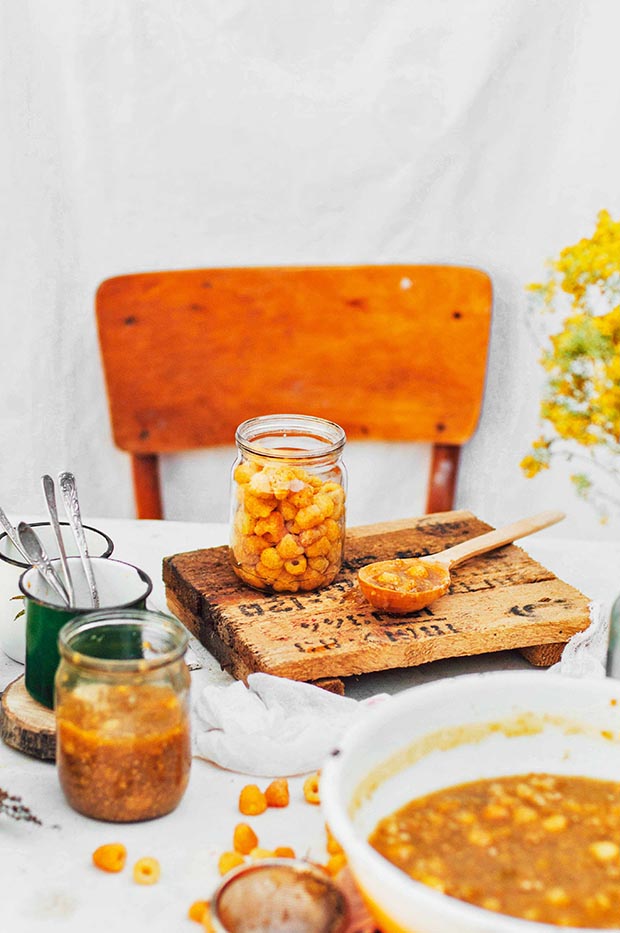How your kitchen can go pro

If you think selling food you’ve made in your home kitchen can’t be done legally, you could be in for a delicious surprise. We meet some small-time home-based business people with a passion for food who show how they work within the rules.
Words & Images: Nadene Hall
Kim Donker makes unique glamour cakes in her home kitchen on her Whangarei lifestyle block. Nicky White sells her gluten-free products at her local farmers’ market. Lyn Haycock uses milk from her five Guernsey cows and produces artisan cheeses in a converted shipping container in a paddock.
All three operate legally under the new Food Act rules which finally came into force in 2016, and in many cases it’s now a lot easier to legally make food products for sale in your own home kitchen.
The Food Act 2014 is designed to help make sure that food sold throughout New Zealand is safe. It has a sliding scale where businesses that are higher risk in terms of food safety operate under more stringent rules than lower-risk food businesses. This means that a corner dairy operator who reheats meat pies isn’t treated in the same way as the maker of the meat pies.
The new Act promotes food safety by focusing on the processes of food production, not the premises where food is made. That’s how Kim can be making cakes in her home kitchen, even though it doesn’t have many of the features of a specialist commercial kitchen like all stainless steel benches. The Act has two types of new food safety measures, either:
• A food control plan (FCP), a written plan for managing food safety on a day-to-day basis, used by higher risk businesses;
• Or a national programme (NP1, NP2 or NP3) which are food safety rules for medium and low risk businesses – you don’t need a written plan, but must register, meet food safety standards, keep some records, and get checked.
WHAT IS A FOOD CONTROL PLAN (FCP)
An FCP is a document that sets out what steps a business needs to take to keep food safe. Many businesses can use an FCP template, provided by the Ministry for Primary Industries, but others will need to develop their own FCP. You’ll need to register your plan each year and have a regular check (verification) to make sure your plan is being followed.
WHAT IS THE NATIONAL PROGRAMME
Many home-based businesses fall under these programmes:
NP1: makes honey, grows fruit and veges, sells hot drinks or pre-packaged shelf-stable foods; transports food.
NP2: includes makers of shelf-stable grain-based products, eg biscuits, crackers; confectionery; crisps, popcorn, pretzels, soy crisps or similar snack products; bread; dried or dehydrated fruit or vegetables; water-based products, eg ice, ice blocks, desserts; shelf-stable condiments, eg sauces, spreads, preserves; frozen fruit and vegetables; processors of nuts or seeds.
NP3: makes alcoholic/non-alcoholic drinks, fats/oil; processes herbs, spices, grains; handles and sells food but does not prepare or make it, eg reheats meat pies or scoops ice cream.
THE 5 STEPS TO GETTING IT RIGHT
Most home-based businesses fit under NP2.
Step 1: Check that your business fits with NP2, eg is it a low risk food business as listed above.
Step 2: Make safe food using good systems, and be prepared to tell an official such as your council’s environmental health officer how you do it, and keep written records of what you do, eg temperature checks, pest control, cleaning regimes.
Step 3: Contact a verifier, which may be an independent food safety auditor, but most commonly will be your local council’s environmental health officer.
Step 4: Register with your local council (via the environmental health officer) if you will be operating your business in their area; if you will be operating in multiple fixed sites in different council areas, you will need to register with MPI.
Step 5: Arrange a verifier visit so they can check you are making safe food. You will be checked every so often, sometimes yearly, sometimes more, sometimes less, depending on how well you show you are managing food safety.
For more details: http://mpigovtnz.cwp.govt.nz/document-vault/10691
HOW TO SELL EGGS LEGALLY
Do you produce and sell only eggs direct to the public, and have fewer than 100 hens?
Then you are likely to be exempt from operating under a Food Control Plan or National Programme. However, you still must ensure your food is safe and suitable to eat, eg eggs must not be broken, eggs must be from the same batch (eg, don’t mix old eggs in a carton with freshly-laid ones), should be stored for sale in a cool (under 15°C), dry, clean place, and be in a clean container or carton.
WARNING:
Don’t put your eggs into a labelled egg carton from another company as it is misleading. Remove or permanently cover any labelling – commercial egg companies do complain about individuals who re-use their packaging. If there is a food safety issue, they don’t want to be blamed for someone else’s bad eggs.
HOW DO YOU KNOW IF YOU COMPLY?
Whether you want to run a bed and breakfast, sell eggs, fruit and vegetables,
or bake, decorate and sell cakes, the Ministry for Primary industries has developed an online tool that helps you work out where your business fits within
the new Food Act rules.
http://mpigovtnz.cwp.govt.nz/food-safety/food-act-2014/where-do-i-fit/
Love this story? Subscribe now!
READ MORE
Whangārei’s cake queen shares tips on starting a baking business from home
 This article first appeared in NZ Life & Leisure Magazine.
This article first appeared in NZ Life & Leisure Magazine.
